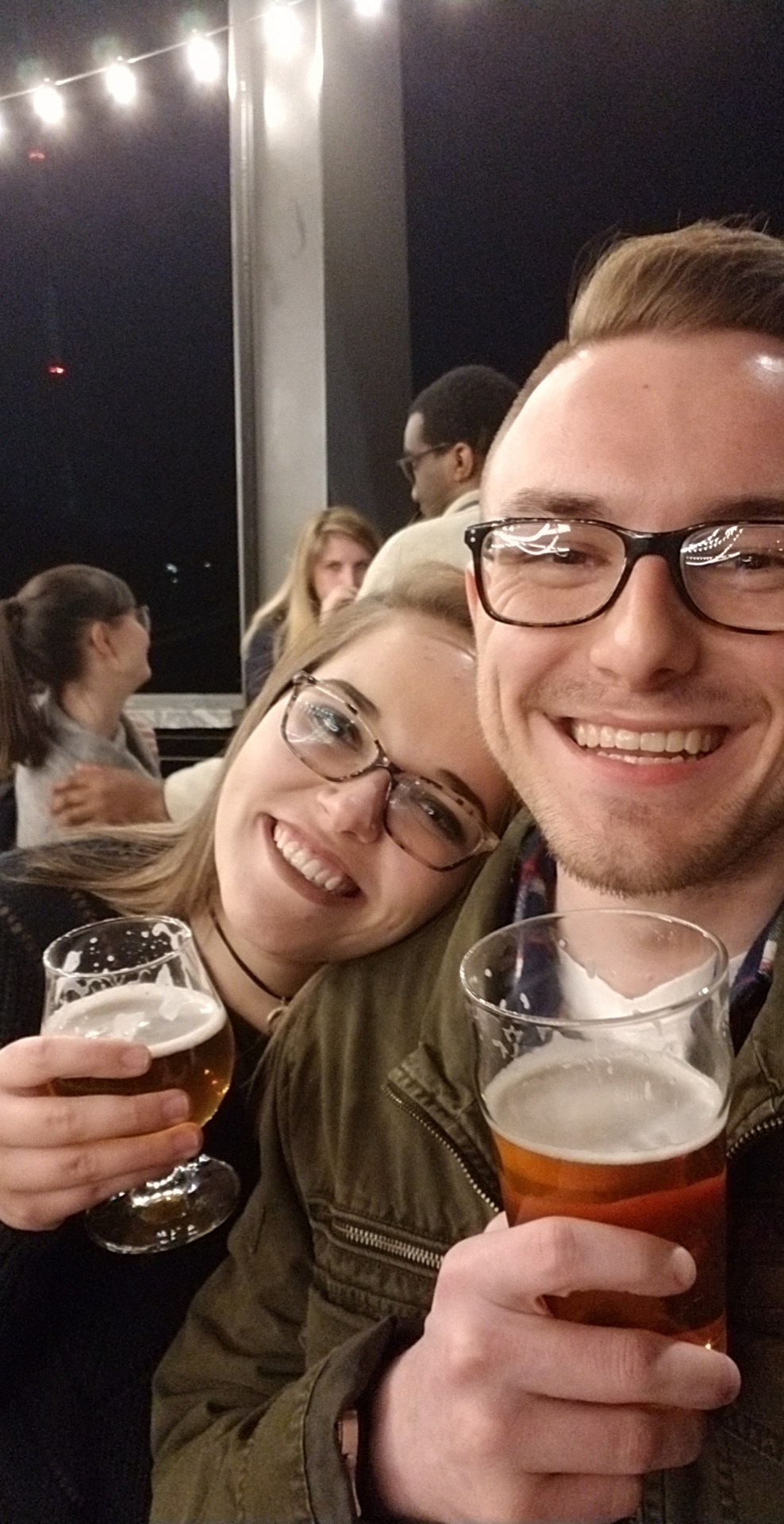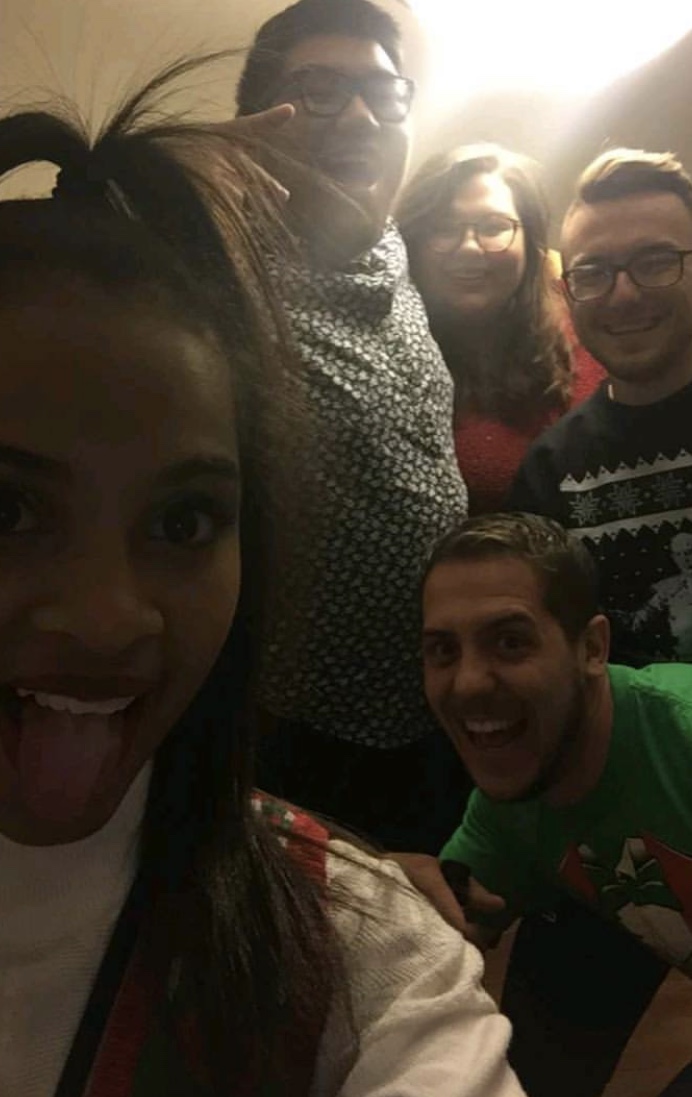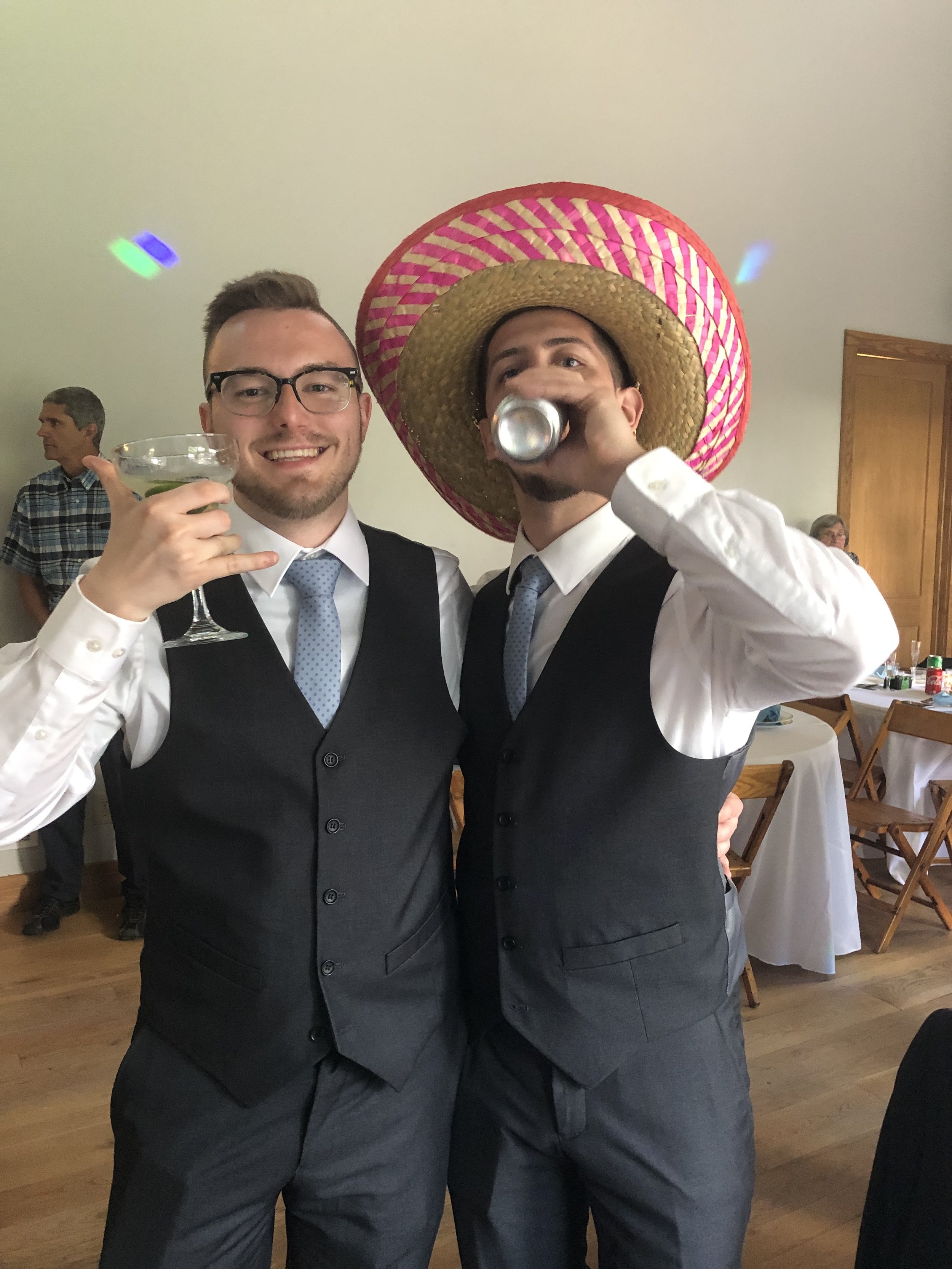The Quarter Life Crisis Chronicles Volume 4: My Career is #Cancelled
TQLCC Volume 4: My Career is #Cancelled
The Bureau of Labor Statistics has no definitive data on the average number of career changes that an adult will take during the life of their career. This means, there is also no data comparing job hopping numbers of younger generations to that of older generations. Because millennials ruin everything, it is no surprise that the idea job hopping (with heavy negative connotations) has become another trademark of the millennial generation. Despite this, no one ask why us youngins change jobs so often. According to Forbes “Job-hopping millennials are more likely to earn a higher wage, develop their career on a faster track and find a better fit in work culture by changing jobs more frequently.” #dropmic. An example of these exact benefits are displayed by my friend Landon. Landon surprised everyone when he announced that he would be leaving his job in pursuit of another career. So, why? Well I asked him.
Background Check:
Me: Can you tell me a bit about your career path during college and what led you to the role you were with your first job after college?
Landon: My career path in college consisted of tons of engineering and math classes. What stood out to me were my major classes. I could work in classes that integrated software with mechanical/electrical components to form systems that functioned/moved based off inputs from the real world. The first system/project that really sold me was this miniature cart (think of a mini car) that could stay a certain range away from whatever object you put about 4 inches from it. So, if you moved the object quickly toward the cart, it would move away quickly, but still try to maintain 4 inches away. Due to having this major, my classes always felt like I was learning something new that was only partially related to the last subject. This ever-expanding collection of skills learned and new topics on the front of my brain echoed throughout my search for my first job. I went into the search really thinking about the day to day and if I would get bored quickly. I interviewed first with Hitachi, which seemed like a perfect job due to the renown that the company had achieved. However, after realizing I would be working on a specific project for multiple years with very little wiggle room for growth into a new subject, I realized this wasn’t for me. Along came MESH Automation, Inc! This company from the moment I walked in had a modern vibe to it, and in minutes upon walking onto the project “floor” (think of a huge mini warehouse with tons of different projects being worked on) I was hooked at the sheer variety of projects and technologies being implemented. This seemed like a place I would always be learning new technologies and never bored. So, after interviewing and speaking on the phone to the director of electrical engineering, I accepted an offer weeks later, my title was “Associate Software Engineer’.
Me: What were some of your early roles in the field?
Landon: Due to the brevity of my stay at MESH (~1 year), I will consider my first 3-5 months my early roles. These early roles were all as a software engineer working on different technology offerings that all consisted of programming, and I also ended up specializing in machine vision. This presented an element of the industry I hadn’t been so aware of being so massive. There is a huge machine vision community, vendors, applications, etc. This is one of the first lessons learned upon entering the field – the intricate web of sub-industries inside of the engineering and manufacturing world. This meant that I had to learn how it all worked, whether it was the reckless overpromising of the product capability by the sales engineers from the various vendors, searching for the experts and organizing in a mental list who could help me with what, or even just understanding what the differences for the 20+ products that a vendor may offer. In regard to the tasks I purely coded on, I worked to create the applications that operators/supervisors/managers used to control their machines/assembly lines they purchased from MESH.
Me: What did a work day look like for you?
Landon: My work days consisted of basically coming into the office around 8:45 to 9:15, shooting the shit with the co-workers as they came in one by one (probably had about 6 really good friends I talked to each day), and then working as much as I could before the inevitable lunch trip with the coworkers and the ensuing food coma that would take me out of commission until around 2 PM. The majority of my days I worked with at least one other person directly, and some projects, multiple people coexisting in the same 10-20 foot area for hours at a time. These days often ended short if I was just too burnt out by 4 PM, but also, there were many other days that were on the opposite end of the spectrum... the midnight nights and all-nighters.
Me: What did you enjoy most about the work you did? The least?
Landon: What I enjoyed the most was the ability to come in and search for a solution to the next task at hand that potentially hadn’t ever been performed before. This was what made the job feel refreshing, despite the constant toll this stress put on me and most of the company. My other favorite thing about MESH was the people I worked with. The friends I worked with directly were all so bright and passionate. This lead to some incredible collaboration and some amazing friendships that I still cherish and keep up with.
What I enjoyed the least? I don’t want to go on a spree of complaining, so I’ll just say that for me personally, I felt as if there were a few issues that I had. To start off, I would say that the level of assurance I felt I had for my future career progression was not up to the standard of other companies.
Me: Why did you decide to make the jump, leave your job, and start over? Feel free to touch on any of these:https://b2b.kununu.com/blog/why-do-good-employees-quit-leave-their-job
Poor management – This was a big deal. But to expand, it was just that the engineers were sort of blamed or pressured to work on the promises of sales. So it was a big disconnect, for at least me, that I couldn’t get past or see them changing.
Poor communication
Feeling over-stressed or over-worked
Lack of support
Work-life balance
Uninspiring or unhealthy work environment or company culture
Seeing good employees leave
Disconnect with company’s values
Disconnect with personal or professional goals
Changes in one’s personal life (geographic move, romantic relationship, etc)
Landon:
Lack of trust and autonomy
Not being appreciated or recognized
Lack of respect
Little to no opportunity for growth and development, no advancement opportunities – This was a big one for me. There were no clear paths, and it seemed many of my coworkers were going down different paths but there was no definition for them, as in, they weren’t being properly helped along those paths but rather the prime interest of the company making more money was more so what was important… but this is kinda just how it is at smaller companies I imagine.
Feeling underutilized
Bad manager
Me and Landon at Graduation: May 2017
Taking The Leap:
So, before we continue, let’s take a moment to talk about how career changes don’t start after graduating college, in fact it starts while in college. Yes, I am talking about changing majors during college. According to Inside Higher Ed “Almost a third of first-time college students choose a major and then change it at least once within three years…”. The fact remains the same that the question one asks themselves when making a major change whether that be our future career (college major) or our current career are one in the same. So what did this look like for Landon? Let’s take a look....
Me: What was the straw that broke the camel's back and made you decide it was time to make that transition?
Landon: I came home and just wasn’t happy. I am not sure what it was, but it was right after the Christmas break and maybe I just had enough down time and came back to the realization that I couldn’t keep putting myself through this. I was just done and basically had somewhat of a mini-breakdown. Tara comforted me and then I knew I had to move on.
Me: What were some questions that you asked yourself when you began considering a career change?
Landon: I am not sure of too many I asked, other than what was important. To me that was gaining more skills to help get me prepared for what I would like to do when I’m basically in my later 20’s/early 30s (being a senior developer/entry project manager). I thought about this and asked where could I go/what could I do to get this done.
If you are considering a career change, but don’t know what you need to ask yourself before the big jump, check out this article by Work It Daily: https://www.workitdaily.com/15-questions-making-major-career-change
Me: What steps did you take to prepare for this change?
Landon: First things first, I worked on my resume immediately. I looked through my work email for descriptions of the work I’ve done. Next, I identified what factors were important. Such as the location the company was in, travel amount, and of course, company values. Once I identified what was most important, I began the search based on those factors and easily enough discovered EY through friends and Tara.
The Balanced Career has an article on successful career changes. You can find it here: https://www.thebalancecareers.com/successful-career-change-2058452
Me: You know, they say not to quit a job before you get a new one. Is this what you did?
Landon: I did not quit. I gave 2 weeks and offered more of my time if I could based on what EY would say. EY had only a couple of start dates, and so I took the date that lined up with the 2 weeks.
Me: How did your family and friends react when you told them you wanted to change careers?
Landon: All were positive and supportive. I only had to defend my position to one really, and that was just because that family member didn’t want me to burn the bridge. I felt bad only about leaving one of my best friends, Carson, after he just got there a couple of months prior. He was one of the main reasons I wanted to stay. Working with him was something awesome and rewarding. Even he was happy for me and glad I would be getting more into programming, since he knew and understood how much we both wanted that.
Me: How was that initial transition into your new career? What hardships did you face that you didn't expect?
Landon: It was interesting… Working for a multi-billion dollar, 270k+ employee sized company is a big shift from the 70 person company I was working for before. Fortunately, Tara already worked at the company and I made friends in her department, and I made friends quickly in my department. I am a social person, so making friends isn’t hard for me. The biggest hardship was the lack of introduction to the consulting world that I had. The leadership has since created better orientation to our specific department, but for me, it was difficult to understand the overview of everything until like 6 months after joining.
Me: How have your goals shifted since changing careers?
Landon: My goals have become more oriented to internal initiatives and the impact that they have on the workforce. One such thing I work on currently is collecting and recording statistics on how flexible our employees feel that EY is. I help create materials and implement the tactics/materials for projects to assist with creating Flexibility, which ultimately leads to better work-life balance, and happiness for all.
Tara and Landon. * photo courtesy of Landon *
Into the Beautiful Abyss:
According to The Balanced Careers, “We can define career change in many different ways. For some, it could mean switching occupational fields, while others may equate it with getting a job with a different employer. Still, others might say they've made a career change when they've advanced to another position within the same field.”
In Landon’s case, it is getting a new set of tasks, at a new office, using the same skills that he attained during college. Let’s take a look at his new 9-5.
Me: What does a work day look like for you?
Landon: I usually log in and first check emails and see where I left off the day before. Next, I would generally work for a couple of hours, majority client work since that’s what gets the $. After a while, it will hit 12-1PM EST, and I will have a catchup call with my manager who’s on PST. I will take any new tasks and update her. Once this is done, I generally go back to dev work or work on testing things I’ve already fixed. I then log off around 4-6 PM EST, and take a call at night to discuss with offshore the work I did for the day.
Me: If you can divulge, What are some big projects you’re working on now or that you’ve finished up in the last few months?
Landon: I won’t say much just in case of any ongoing NDAs I’m not privy to but may still apply. I have worked with some major clients to transform their legacy systems to a more modern and higher performing system.
Me: What do you enjoy most about the work you do? / What are you most excited about right now?
Landon: I enjoy the fact that I know I am part of a big team who is working every day to create a huge software solution to transform my client’s company.
I am most excited about the deployment of the solution we’ve been working on going live.
Me: What are some of the biggest challenges you face day-to-day?
Landon: I have to interface a lot with coworkers who don’t necessarily communicate as well as they should via Skype due to using a separate laptop to do their work on. This creates a habit of me having to call my direct manager often, which isn’t looked at badly, but sometimes I must figure things out that way which may be an hour delayed or so. I spend a lot of time trying to ensure I am never left out and am always keeping up with them even if they are not online to talk to.
Me: What about the biggest rewards?
Landon: The biggest rewards are that I feel appreciated, get bonuses for the hard + extra work I do at times, and lastly, I feel I am getting valuable programming experience along with networking and making a name for myself.
Me: Where do you see yourself in 5 or 10 years?
Landon: I will hopefully be adding on to what I’ve done at EY with at least a few more years, if not all that time. I would like to get into more community/public service, as that is a high priority of mine to begin getting involved with.
Sometime Before Getting Drunk and Iced Coffee. December 2017
Final Thoughts:
Me: What advice do you have or someone looking to change their career/ job?
Landon: Don’t be afraid to leave if it truly isn’t what you want to do/won’t help you get to what you want to do. No one spent 13-17 years in high school & undergrad preparing for life just to be miserable and afraid to pivot to the path you want to take. Create a plan like what I did and figure out where to go from there.
Me: Do you have any resources for people looking to get into a similar field as you?
Landon: I don’t really. I would gladly talk to whoever though. I can suggest just brushing up on coding skills based on what the sub-industry you want to get in and presentation skills. Consulting requires personality and presentation skills to succeed above and beyond.
Wedding Shenanigans: Groomsmen Edition. May 2019
Conclusion:
Before we wrap up here, I mentioned earlier that one in three college students will change their major before graduating. This to say, if you’re feeling like your career is something that you need to change, you are not alone. I myself changed jobs at the beginning of this year and my entire life has changed for the better. You too can change your life for the better. Just like me and just like Landon.
If you like what you read and cannot get enough career advice, check out my career wellbeing blogs in which I talk about how to land your dream job, advance in your career, and live your passions.
As always, please sign up for my newsletter to get updates straight to your inbox and share this blog with all of your friends!
Sources:
https://www.bls.gov/careeroutlook/2017/article/older-workers.htm
https://b2b.kununu.com/blog/why-do-good-employees-quit-leave-their-job
https://www.workitdaily.com/15-questions-making-major-career-change
https://www.thebalancecareers.com/successful-career-change-2058452
https://www.thebalancecareers.com/how-often-do-people-change-careers-3969407




